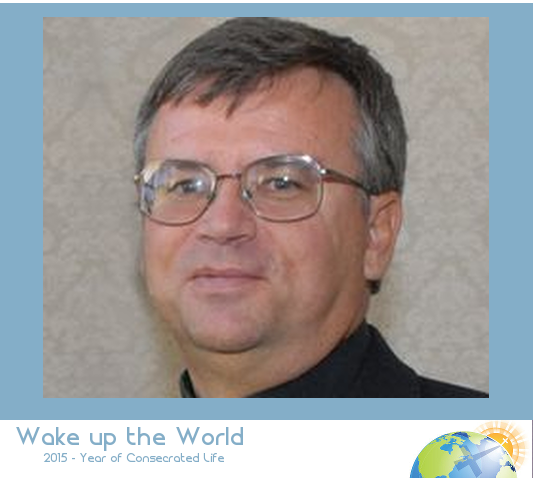 Father Patrick Griffin CM reflects on “Solidarity” in his series devoted to Considering Consecrated Life
Father Patrick Griffin CM reflects on “Solidarity” in his series devoted to Considering Consecrated Life
In my last essay, I wrote about “blame” as it arises in the story of Aaron and the golden calf (Exod 32: 1-24). This week, let me deal with an attitude which emerges later in the same story. Moses is fearful that the actions of Aaron and the people will lead to the Lord’s rejection of them since they have rejected him. He retraces his steps up the mountain:
So Moses went back to the LORD and said,
“Ah, this people has indeed committed a grave sin
in making a god of gold for themselves!
If you would only forgive their sin!
If you will not, then strike me out of the book that you have written.”(Exod 32:30-32)
Wow. That is some “ultimatum” which Moses presents before God: “Forgive my people or condemn me with them.” The Lord, of course, settles on a solution which manifests the divine justice as well as mercy, but that is not the lesson which I would like to emphasize here. Rather, I am attracted by the solidarity which Moses claims with his people. He assumes their wrongdoing as also attributable to him.
A clear characteristic of leadership, but also membership, in a community is the willingness to be associated with the decisions and directions of the group. One’s bond to the other persons cannot be erratic and sporadic. The lessons of the marriage vows might be invoked in which a person promises fidelity “for better, for worse; for richer, for poorer; in sickness and in health” until separated by death. Only with a mutual confidence and a sense of dependence can a community progress, and it must be done together.
Paul demonstrates this attitude in his willingness to be connected with his ancestral heritage and people:
“I speak the truth in Christ, I do not lie; my conscience joins with the holy Spirit in bearing me witness that I have great sorrow and constant anguish in my heart. For I could wish that I myself were accursed and separated from Christ for the sake of my brothers, my kin according to the flesh.” (Rom 9:1-3)
One hears here the same attitude as that of Moses. Again, the position seems exaggerated: Paul would be willing to be separated from Christ by a curse if it meant the salvation of his people! Yet the hyperbole emphasizes the importance of his people to him—his solidarity with them. He remains always a member of the Jewish community.
The cross, of course, stands forth as the great sign of this affiliation with one’s people. Little (or everything) needs to be said about the way in which Christ identified himself with us as sinners in order to win our salvation.
“No one has greater love than this, to lay down one’s life for one’s friends.” (Jn 15:13)
The cross offers that great symbol of solidarity and friendship.
The demands of solidarity cut across many lines in our lives as citizens of the same country, as Catholics, as Vincentians, and as consecrated persons. Pope Francis draws the circle even wider in his encyclical Laudato Si’. He says that “I wish to address every person living on this planet” (§3) as he speaks about “our common home” (§1). Throughout the encyclical he emphasizes the need for each person to take responsibility for our planet and those who occupy it with us, and particularly the poor. We stand in solidarity with the one natural order.
In this year, Fr. Greg Gay calls us to a special emphasis and connection with one another through our collaboration as a Vincentian Family. The benefits of our solidarity are without question, and our founders called us to a particular closeness to the poor. Vincent writes:
“We must likewise be moved by our neighbor’s suffering and share his sorrow. . . . Is anyone sick and I am not sick along with him?” (VdP, CCD 12:207, p. 221)
We can see the way in which solidarity continues to be emphasized in the Family. In addressing the General Assembly of the Congregation in 1998, Bob Maloney reminded us that:
“Our growth in God’s life also flows from the bonds of deep charity forged with one another and with the poor; we serve not just as individuals, but in solidarity with others.”
Dennis Holtschneider spoke about “expanding the circle of solidarity” to the National Vincentian Family Gathering (NVFG, 2005). The Vincentian Solidarity Office (VSO), directed by Miles Heinen for the General Curia, assists various Vincentian ministries in obtaining funding for services to the poor.
Vincentian solidarity gets expressed through collaboration. Seeking ways in which we can cooperate with each other is important. Keeping the various branches of the Family in our prayer and reflection emphasizes this oneness. The cross unites us to all people; our Vincentian heritage joins us in a particular way to those who are poor. Moses models the extent of this solidarity for us.








0 Comments